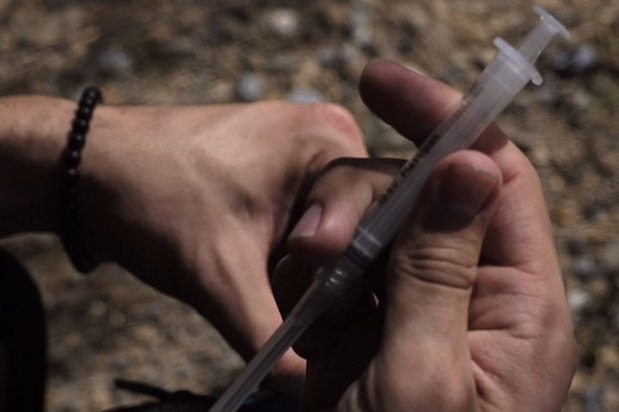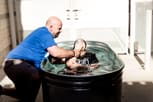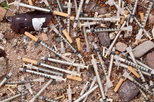The serious risks and life-altering, communicable diseases associated with intravenous drug use are affecting communities nationwide as the opioid epidemic remains. Aside from the overt risks associated with addiction and the impact it has on individuals and families, the high mortality rates of IV drug users have only been paralleled by the increasing potency of the injectable drugs available to them. Addicts, including and especially IV drug users, will use what they use anywhere that's available to them.
This is where it gets particularly tricky within communities to contain communicable diseases that can easily be spread by contaminated needles, as well as remaining attentive to the staggering number of drug-related deaths in the United States.
According to the Centers for Disease Control (CDC), about 67,136 lives were lost to addiction alone, from June 2018-June 2019, with 0.23 percent of suspected overdose deaths still pending investigation (and that figure itself is noted to be a conservative one, due to underreported data). The U.S. is inching along, yet remains far away from taking regulatory steps to view addiction as a mental health condition with a crushing impact on communities. However, some districts are starting to grab onto what they can control; the spread of IV drug use related diseases & the locations where addicts can safely use illicit substances.
Needle Exchange Programs
Any communicable disease can quickly escalate into a public health concern if proactive measures are not prioritized and initiatives to achieve that goal are not widely discussed and implemented. Regarding IV drug users, Hepatitis-C and HIV (and subsequently AIDS) are widespread among their population but can also spread to those who are not IV drug users. Just like addiction, affiliated diseases do not discriminate.
Both Hep-C and HIV/AIDS are bloodborne pathogens that could easily be transmitted to, say, a nurse treating an infected person in the hospital. Once infected, they could potentially transmit to their partner or spouse, even perhaps their future children, potentially spreading a long line of affected persons past the patient who initially transmitted the disease. There are some treatments available, but the regimen, side effects, and cost are far from enticing.
The physical diseases that affect the addicted are not self-contained within the addicted population because those who suffer from substance abuse disorders are everywhere, in every population, interacting in one way or another with other citizens. Comprehensive needle exchange programs are one way to minimize the spread of disease and prevent epidemics like the one which hit a community in Scott County, Austin, Indiana from 2011 to 2014, with 215 total HIV cases reported according to Reuters Health.
Any public health setup which provides access to clean needles is one way to acknowledge the truth of addiction's presence within a community while also working to minimize the spread of associated disease. There's still more that can be done to create safer communities, and it starts with acknowledging that addiction exists just as much for the addict as it does for the remainder of the populace.
Safe Injection Sites
Safe injection sites, especially those that incorporate the CDC model syringe service programs (SSPs) are another way that cities and states can address the public health concern of high mortality rates among addicts, specifically IV drug users. Acknowledging the associated risks to a community and offering options to contain those risks and treat the afflicted, should be a primary concern of public health departments nationwide, considering the high incidence of illicit and IV drug use. The CDC model incorporates SSPs which also provide resources to substance abuse treatment programs; including medically assisted treatment.
According to a report by the University of Southern California Nursing Department on safe injection sites, "there are currently no sanctioned safe injection sites in the United States".
Per the USCND, "San Francisco, Philadelphia and Denver are among some of the cities seriously considering safe injection sites. None have been opened yet in the [United States]." At the time of their 2019 report, of the 100 safe injection sites across the globe, zero deaths had been reported along with reasonably high numbers of patients accepting intervention to treatment facilities.
Minimizing Public Risk
More to the point again, an addict will use what is available to them, where it is available to them. Once an addict is all-consumed with their addiction, there ceases to be a reasonable expectation that they will care about tossing their potentially contaminated needle into your rose bushes for your children to find or for you to step on while out walking the family dog. Denouncing those suffering from substance abuse disorders as fellow members of our communities doesn't erase the damage that could be caused and the fact that it will likely continue to worsen the longer we as a society continue to not prioritize and address addiction, specifically IV drug use, as the public health concern that it is.
The evidence points strongly to comprehensive treatment for substance abuse, particularly the treatment of intravenous drug users as a public health risk to be beneficial for communities. Comprehensive treatment would include screenings, well-regulated needle exchanges, and safe injection sites. Next on the list, perhaps considering treatment as an alternative to incarceration can be a subsequent area of focus; as it appears, the war on drugs was lost long ago as it continues to permeate communities regardless of race, creed, orientation, and socioeconomic status. What affects any of us in a community can and does inherently affect all of us.
|
If you or someone you know is seeking help from addiction, please visit our directory of treatment centers or call 800-891-8171 to speak to a treatment specialist. |








